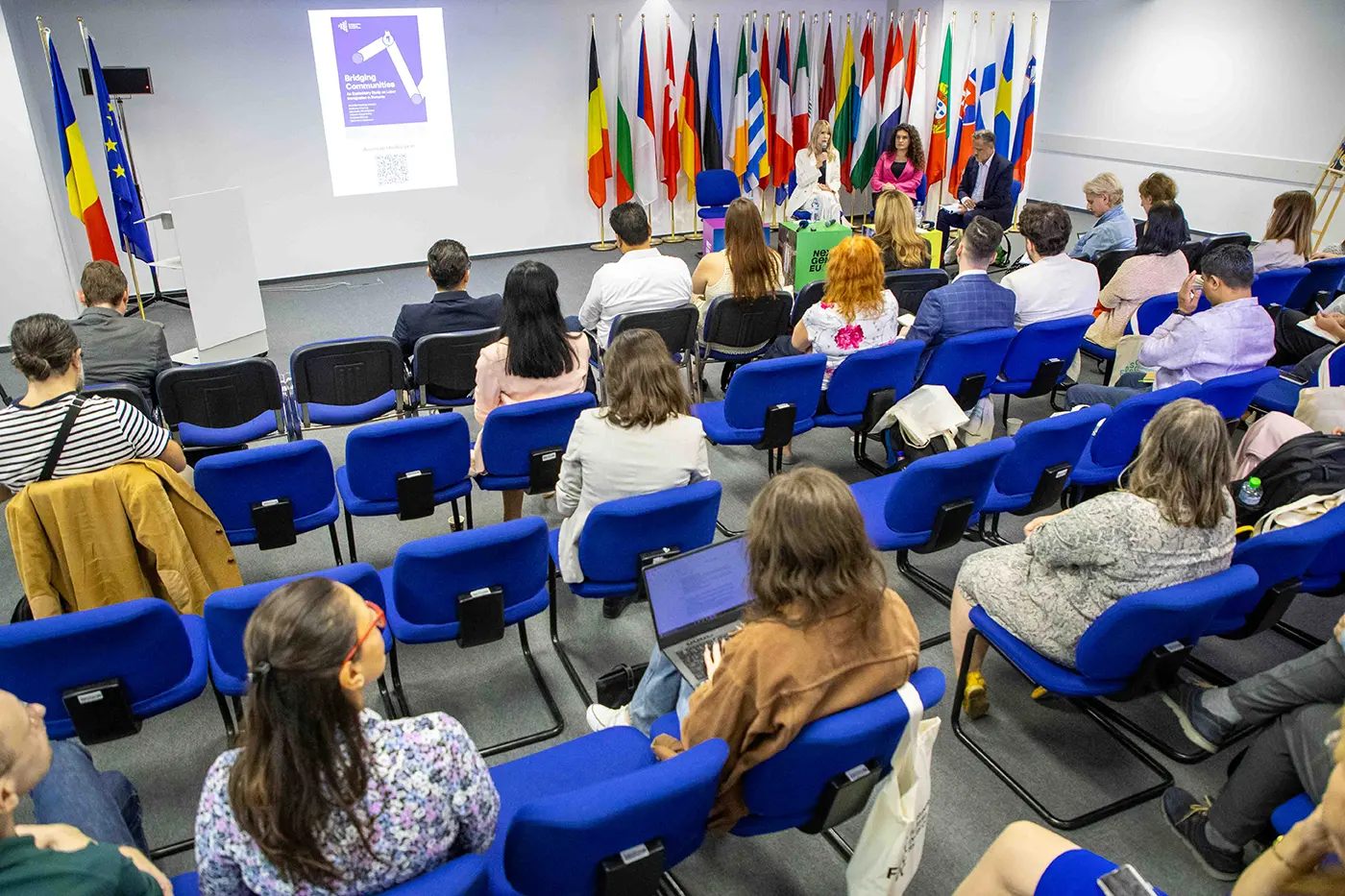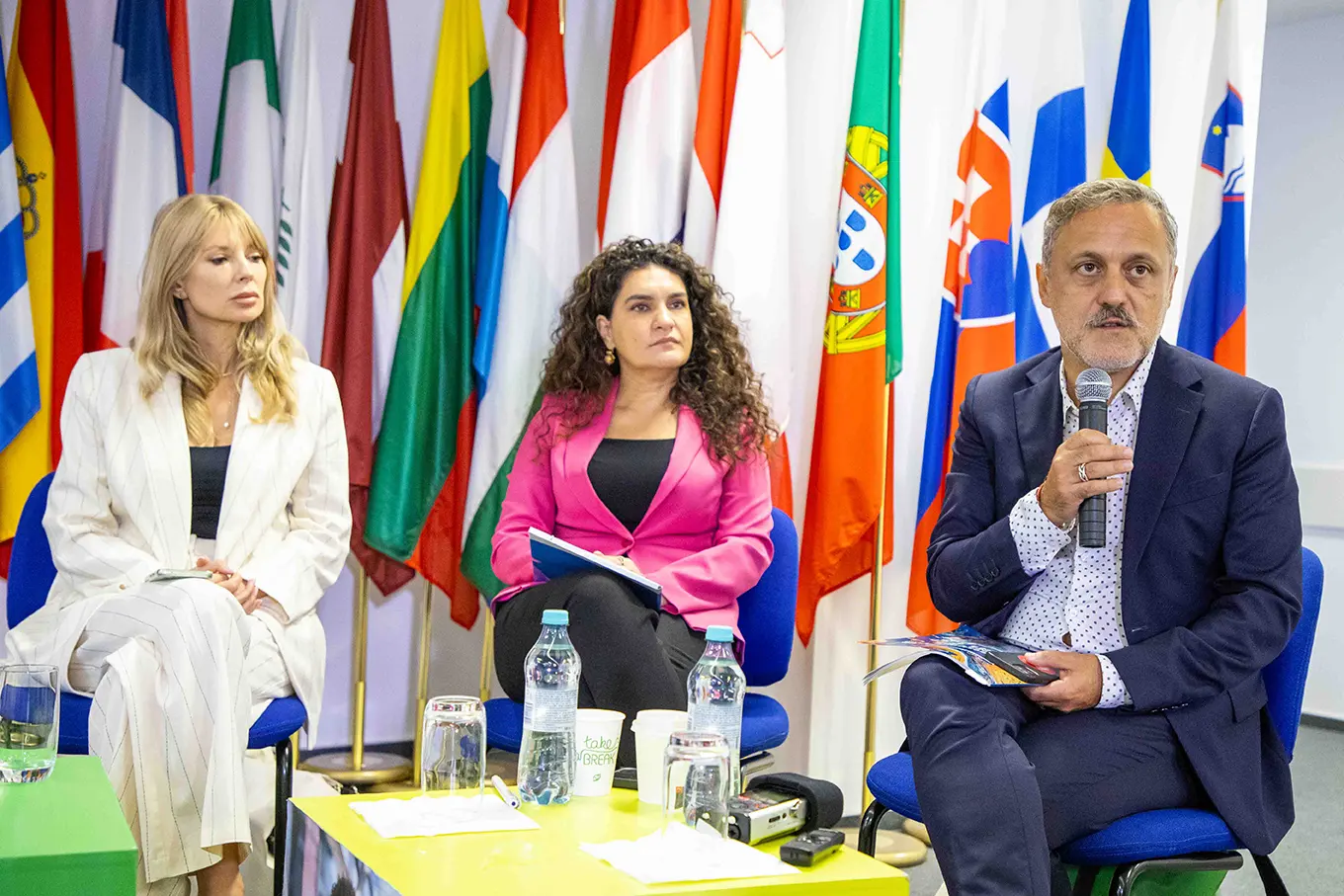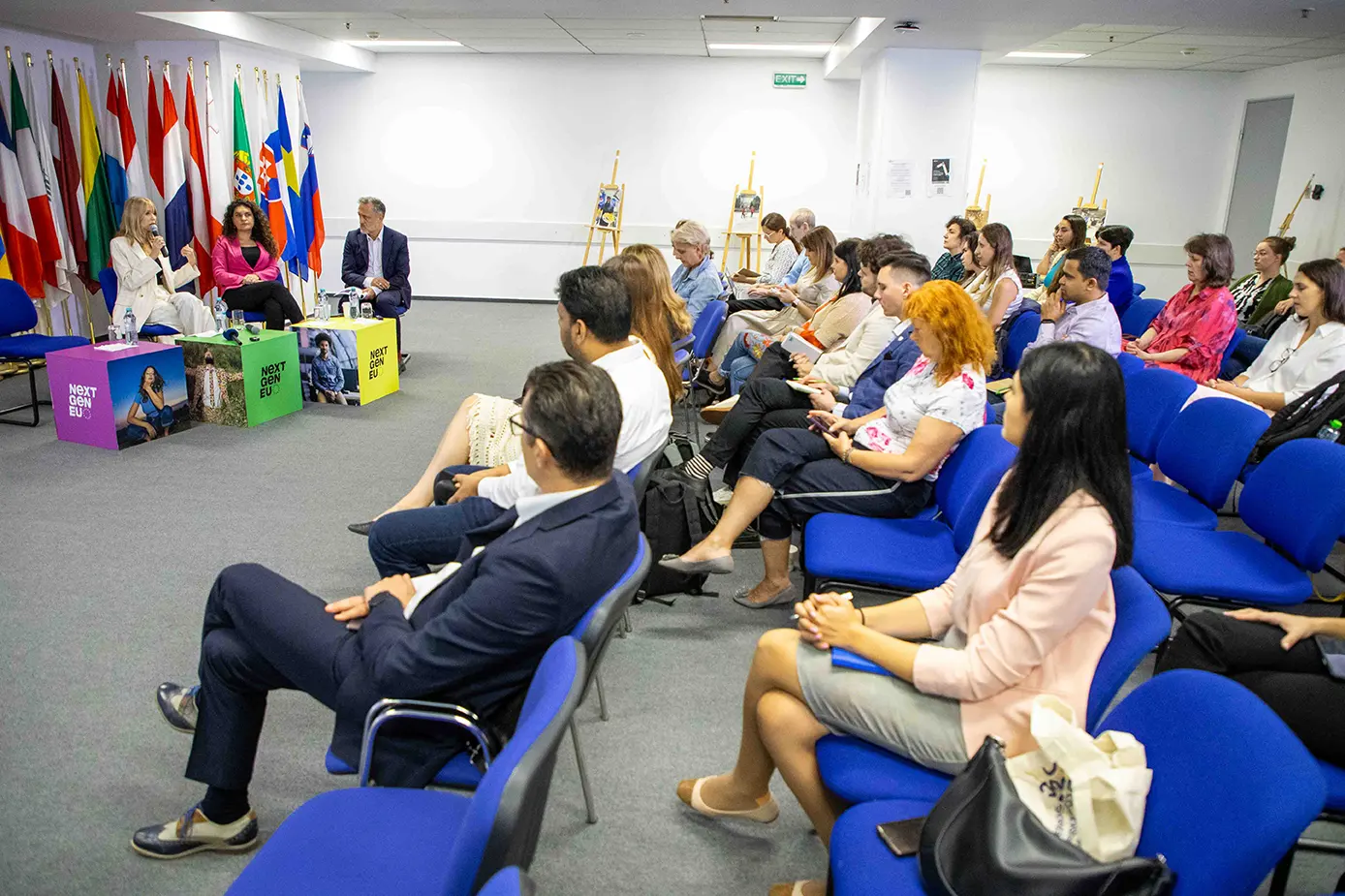Bridging Communities: an exploratory study on labor immigration in Romania
The Civil Society Development Foundation launched the Bridging Communities: An Exploratory Study on Labor Immigration in Romania report, coordinated by Anatolie Coșciug, together with co-authors Andriana Cosciug, Alexandra Porumbescu, Viktoriia Kyrychenko, Andreea Mercea and Alexandra Adamescu from the Center for Comparative Migration Studies in Cluj-Napoca.
This exploratory study provides an analysis of the challenges and opportunities that labor immigration presents for Romania, with a special focus on workers from South Asia, as the country faces a growing labor shortage.

Key study recommendations:
Improving workers’ legal protection: Human rights-centered immigration policies should be adopted to ensure that workers are fully protected, both in the workplace and in their social life. These measures must include clear mechanisms to sanction employers who violate workers’ rights.
Improved access to social and public services: The report emphasizes the need for a better integration of the migrants into health and social protection systems. It recommends designing programs for information and assistance in several languages and simplifying administrative procedures to ensure rapid access to basic services.
Better monitoring of recruitment and selection agencies: Recruitment/selection agencies play a crucial role in bringing migrant workers both in their country of origin and in Romania. The study recommends more rigorous monitoring of these agencies and imposing strict standards of transparency and accountability.


Highlights of the report:
Rising immigration from South Asia: The study highlights a significant change in the Romanian immigration landscape, with an increasing flow of workers from countries such as Nepal, Sri Lanka and Bangladesh. These workers play a critical role in industries such as construction, retail and hospitality, contributing to Romania’s economic development at a time when the country is facing labor shortages. For example, in 2023 alone, labor immigration contributed more than 1% to Romania’s GDP.
Working conditions and vulnerabilities: While Romania offers multiple economic opportunities for migrant workers, the study also highlights the vulnerabilities they face. Unpaid overtime, abusive employment contracts and inadequate housing, as well as other bureaucratic barriers are among the problems reported by those interviewed.
Limited access to social and public services: Migrants in Romania face difficulties in accessing public health and other social services. Many of these problems are caused by a lack of information on both sides, as well as language barriers that make it difficult to interact with public authorities.
The role of the state and private actors: The study draws attention to a trend of “privatization” of labor migration governance, with private companies and agencies taking over a significant share of the critical responsibilities for monitoring and enforcing migrant workers’ rights legislation. This sometimes creates an imbalance in labor relations and comes with a challenge in protecting their rights.

Conclusions:
The Bridging Communities study points out that while labor immigration brings considerable economic benefits to Romania, it also raises potential problems in terms of respect for the fundamental rights of migrant workers. In order to ensure a balance between economic needs and human rights obligations, it is essential to reform immigration policies and adopt protection measures that are fair and accessible to all.
For more information please contact us at iulia.vizi[at]fdsc.ro or by phone – 0747416280.
Contact us
Address
21 Str. Nerva Traian
Sector 3, Bucharest
Romania
Stay up to date with CSDF’s activities!
30 years of CSDF
30 years of CSDF
30 years of CSDF
30 years of CSDF
30 years of CSDF
© 2026 Civil Society Development Foundation. All rights reserved.



